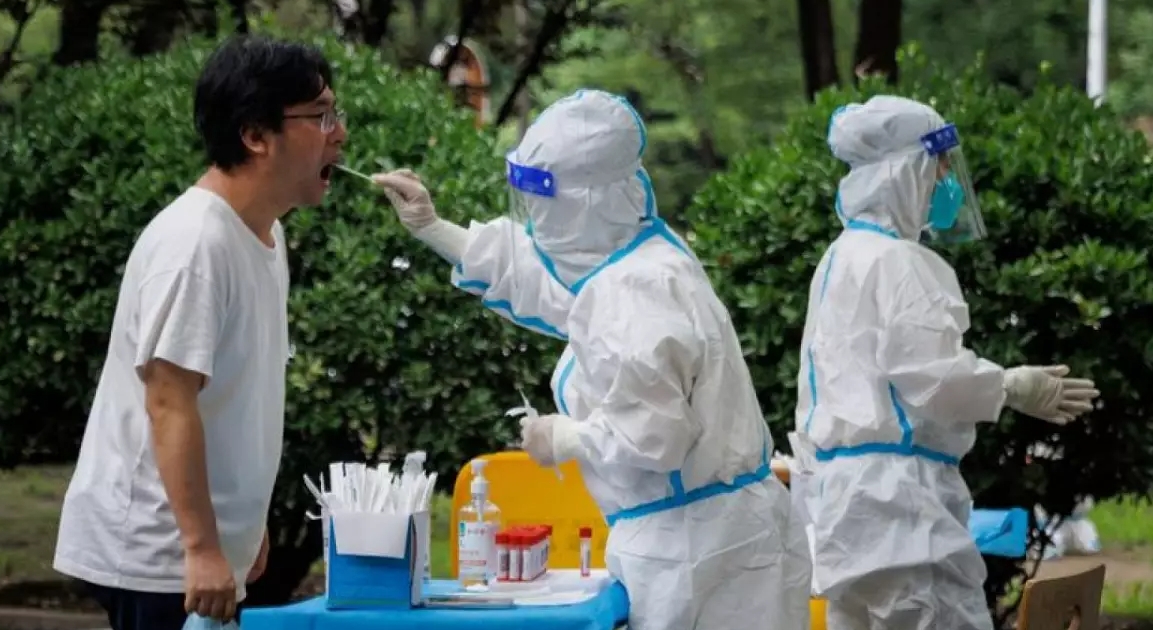Numerous Chinese cities are adopting new COVID-19 restriction measures, from business shutdowns to lockdowns, to curb new infections, as the Shanghai shopping mall prepares for another mass testing campaign after detecting the sub-variant of Omicron BA.5.
As China clings to its “proactive zero-contagion” policy to quickly stamp out all outbreaks, the stringent curbing measures by local governments come despite the low number of cases, at a time when much of the world live with the virus.
The central government has said restrictions must be as targeted as possible to reduce damage to the world’s second-largest economy after major disruptions this year clogged global supply chains and hit international trade.
Highly transmissible, BA.5 is causing outbreaks in many countries outside of China and has shown greater ability to escape vaccine-induced antibody reactions compared to other omicron subvariants, according to health authorities.
The discovery of one such infection in Shanghai raises the importance of quickly containing a nascent outbreak to avoid more disruptive measures, similar to the April and May lockdowns that hit the global economy and markets.
China’s currency, the yuan, fell against the dollar, and stock markets also weakened.
China data due out this week — June trade numbers on Wednesday; retail sales and industrial production last month and gross domestic product for April-June on Friday — will likely confirm that the economy slowed sharply in the second quarter amid coronavirus lockdowns in Shanghai and elsewhere.
Shanghai, China’s most populous city with 25 million people, has asked residents of several districts to undergo two tests in another round of mass screening from Tuesday to Thursday, similar to the one last week.
Its inhabitants already undergo tests every few days to ensure access to various places and public transport.
Authorities and some investors hope that these relentless tests will discover infections early enough to keep them under control.
The risk of a prolonged big city lockdown has been reduced by early checks, UBS Global Wealth Management said.
“We expect that the COVID restrictions, mainly in the form of continued mini-lockdowns for the rest of the year, will be less disruptive to production or supply chains, along with the gradual rollout of new relief measures,” it said in a note.
Daily counts of locally transmitted infections in Shanghai have risen since July 5, up from single digits earlier this month, but remain minuscule by global standards.
Most of the recent cases have occurred among those already in quarantine.
New restrictions in other places
On July 10, mainland China reported 352 new locally transmitted COVID infections, including 46 symptomatic and 306 asymptomatic, the National Health Commission reported Monday.
In the central province of Henan, the city of Qinyang has almost completely locked down its nearly 700,000 residents since Sunday, with one person from each household allowed to go out every two days to buy food.
In some areas, people have been told not to leave the house at all.
Four major districts in the northwestern city of Lanzhou in Gansu province and the southern cities of Danzhou and Haikou in Hainan province are under temporary restrictions for several days, with entertainment and cultural venues closed.
The regulations affect some 6 million people in the three cities.
The city of Nanchang in the southern province of Jiangxi, with a population of 6.3 million, closed some entertainment venues on Saturday, although the duration of the bans was not specified.
In the northwestern province of Qinghai, the city of Xining launched a mass testing campaign on Monday after one person tested positive on Sunday.
Several major districts in the southern metropolis of Guangzhou also began mass testing on Monday.
